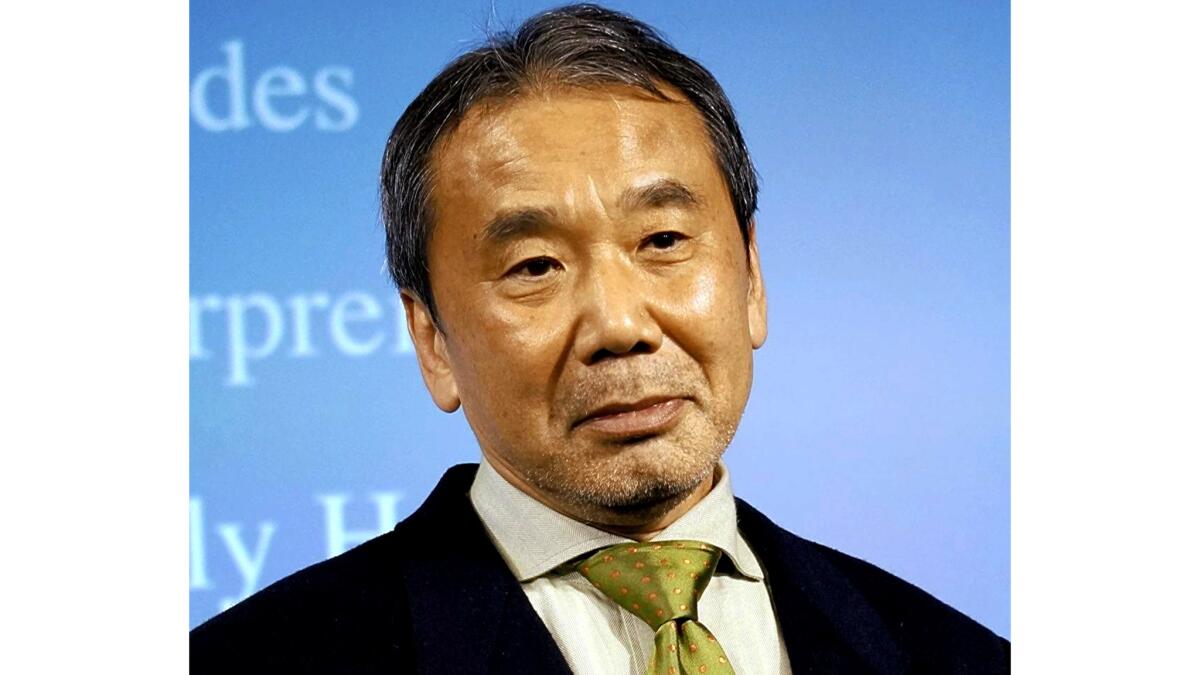Haruki Murakami’s library list is published, and Japanese librarians are up in arms

A newspaper has published the books Haruki Murakami borrowed from the library as a teenager, causing an uproar in Japanese letters.
- Share via
Librarians in Japan are upset after a newspaper published the names of books that novelist Haruki Murakami, 66, checked out as a teenager from his high school library, the Asahi Shimbun reports.
The Japan Library Assn. criticized the Kobe Shimbun newspaper for printing a photograph of a library card that contained the names of several Hyogo Prefectural Kobe High School students, including Murakami.
The author of novels “1Q84” and “The Wind-Up Bird Chronicle” is a perennial top seller in Japan, perhaps the country’s largest literary celebrity.
Agence France-Presse reports that the books Murakami checked out were by the French author Joseph Kessel, best known for his 1928 novel “Belle de Jour.” The novel is about a housewife who secretly works as a prostitute.
Speaking out about the disclosure, Japan Library Assn. member Yasuhiro Nishigochi said, “It is not right if people cannot use a library free from anxiety.”
The assistant managing editor of Kobe Shimbun newspaper, Hideaki Ono, argued that the story was fair game. “Mr. Murakami is a person whose work and how he developed his literature are a subject for scholarly study,” he said. “He is known to have profound knowledge of British and American literature. But [the cards] showed he also explored French literature in his younger days. We believed these facts are of high public interest.”
See the most-read stories in Life & Style this hour >>
The library cards were leaked by a volunteer at Murakami’s alma mater, who tipped off the newspaper after finding Murakami’s name on them.
The high school has apologized for the leak, but Kobe Shimbun has thus far declined to apologize to Murakami. Editor Ono, however, did apologize for the photograph that showed the names of other former students at the school.
“We were inconsiderate in terms of running the story in the form that all the students’ names were deciphered,” Ono said.
More to Read
Sign up for our Book Club newsletter
Get the latest news, events and more from the Los Angeles Times Book Club, and help us get L.A. reading and talking.
You may occasionally receive promotional content from the Los Angeles Times.










